Did Edgar Allen Poe believe he was God?
Poe's retelling of Genesis and the influence of religion on his work
The Man? The Myth, The Legend
Edgar Allen Poe is known for being a controversialist, touching upon sensitive, lofty subjects such as insanity, death, revenge, and even incest made it to his pages. It is no surprise that he couldn't avoid the disputable theme of religion.
In fact he takes advantage of the sensitive nature of the matter to further heighten the tension in his work.
….Whether you call this a manipulation tactic or exploitation, there’s no doubt that Poe understands the science of crawling under people’s skin.
“The plot of God is perfect. The universe is a plot of God.”- Poe
To him God did not only create the universe, he WAS the universe.
The conflict between good and evil, spiritual vs conscious existence, and the complexity of the human mind, were the focus of his books. Which he viewed as his creation- the universe he fabricated.
Mesmeric Revelation
The two main characters in this short story are the narrator who is the hypnotherapist ,only addressed to as “P”, and is asked by his patient- Mr Vankirk, the old man dying of tuberculosis- to be mesmerised (old fashioned for hypnotised) one last time. Stating that whenever he was mesmerised in the past, he’d experience a transformative epiphany of life and existence.
However it is barely a story…
It’s simply an excuse for Poe to explore philosophies about the metaphysical. Both characters question the nature of the universe, mortality, the existence of God and the fate of the dying man’s soul… until the hypnotherapist realises that the old man has been dead all along sometime during the beginning of his hypnosis. Forcing the narrator to wonder whether he was being addressed “from out of the region of the shadows”
Mesmeric Revelation’s Version of reality
No division between the spiritual and the physical
The universe as a whole is a magnetic fluid, connecting all things to one another, any influence or change is echoed through everything.
Therefore we are all one combined thing only separated by our own consciousness
everyone and everything together is God.
Poe’s role in this scenario
There has been no question that the “P” of the hypnotherapist stood for ‘Poe’. As the story is Poe’s trajectory of having an existential crisis and contemplating his own beliefs. Although I agree, I am also fully convinced that the “P” stood for ‘Prophet’, which would explain the name of the story. In both the Bible and the Quran, ‘Revelation’ is the process of the Holy Spirit revealing to the prophets what god wanted them to know.
But does that mean Poe thought of himself as a Prophet looking for answers or was he the Supreme Being by providing the reader with those insights?
Regardless if this was Poe’s motive or not, he was seen as a philosophical guru providing the answers to the mystery of existence. This hoax of a story has acted like a sacred display of mesmerism, with people going as far as using it as a case study for their belief in the pseudo-science and even replicating the experiment of hypnosis.
Poe’s version of The Bible
Though Poe was not a particularly religious man, his beliefs were a mixture of Pantheism and Deism. Weirdly enough however it was the Bible's influence that is clearly evident in most of his work.
Before we get into the religious parallels, here is the simplest summary of “The Black Cat”
Narrator is an alcoholic that is abusive towards his wife and their numerous pets, except their black cat who he has a close bond with
His drinking leads him to gouge his cat’s eye out, changing the relationship dynamic they had
He becomes irritated with how distant his cat had been so he hangs it from a tree in his garden
The night of the murder, his house burns down
He replaces his beloved cat with a new one, but becomes paranoid and afraid of it
In a fit of extreme irritation, the man tries to kill the cat with an axe. But due to his wife's intervention, he accidently buries the axe in the her brain, killing her instead
He bricks up her body within a wall to conceal it
The police conclude that the narrator is innocent after the investigation of her disappearance, until the cat who had been bricked up with her makes a desperate screeching sound.
They break down the wall, discovering his crime.
Narrator sentenced to death by hanging
“ The devil made me do it”
The belief that black cats are the devil in disguise is one of the oldest and most prevalent superstitions, and it was the Catholic Church that first made this distinction in the 13th century.
The narrator blames the black cat for his wife’s death, for the same reason man blames Satan for his sin and suffering - to take the burden of committing the immoral act off his shoulders.
This story illustrates the biblical verse stating that despite external sources of temptations, our own sinful nature is the ultimate source. “But each one is tempted when he is lured and enticed by his own desires. Then when desire conceives, it gives birth to sin, and when sin is full grown, it gives birth to death”….Interestingly the verse ends in death, just like in “The Black Cat”.
Could Poe have been any more obvious?
Another resemblance is the element of fire, symbolic of the presence of the devil. The burning of the narrator’s house immediately after he hangs the cat is proof of its satanism, and since in the Bible god sends Satan to “the lake of fire” where he’s "tormented day and night for ever and ever", the black cat is mirroring its fate or afterlife onto the narrator’s reality.
The resemblance to Genesis
It is widely believed that ‘The Black Cat’ is a retelling of ‘Genesis ’, as some of the similarities cannot be overlooked.
In ‘Genesis’ the initial purity and innocence are expressed by the nudity of man, comparably in ‘The Black Cat’ the narrator’s youth and childhood is symbolic of this innocence. In both stories this purity is stripped away after the characters’ wrongdoing.
Another uncanny similarity is the characters’ female and animal companionships. In ‘Genesis’ God surrounds man with “every animal of the field” (Gen. 2:19) and in Allen Poe’s story the narrator fills his house with a variety of them. The narrator then talks about his female companion in life- his wife. Likewise, a marriage relationship is willed by God as he creates a woman for man.
It is unclear whether Poe has used the comforting theme of religion in his work as a means of mockery or as a way of exploring his own beliefs.
Was he trying to connect with God or was he trying to imitate God?
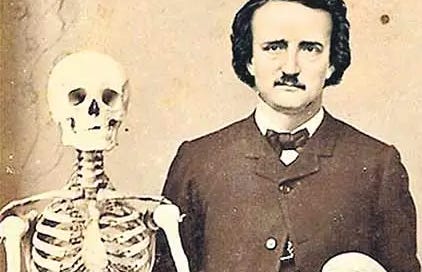


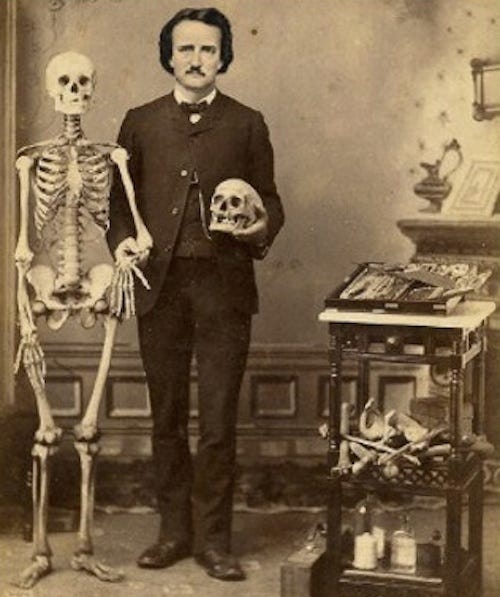
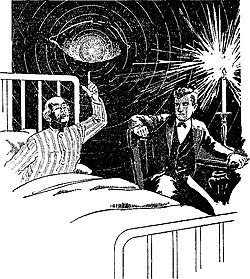
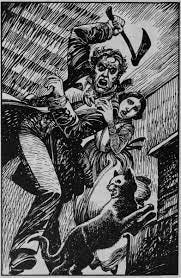
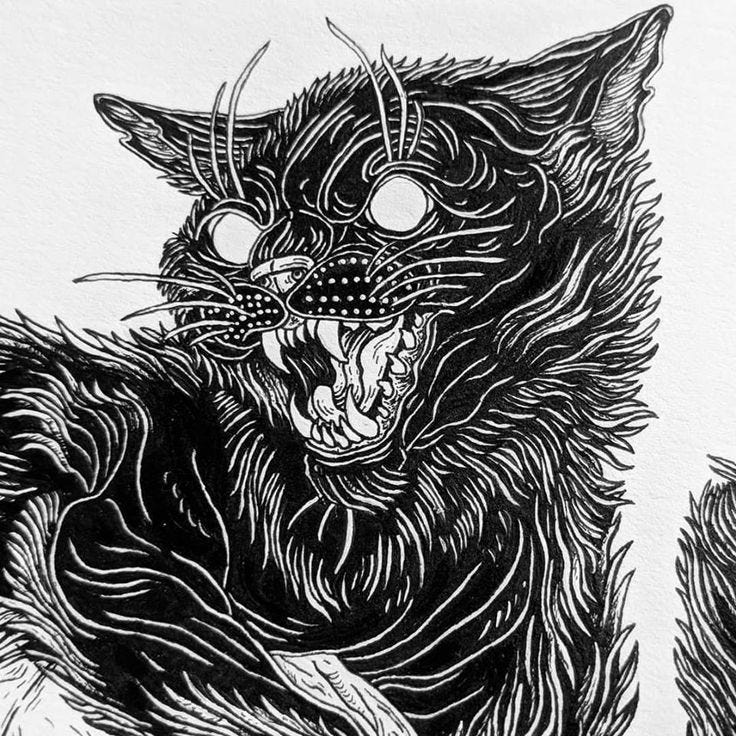
genius in the works !! 💅💅💅
U opened up my other eye